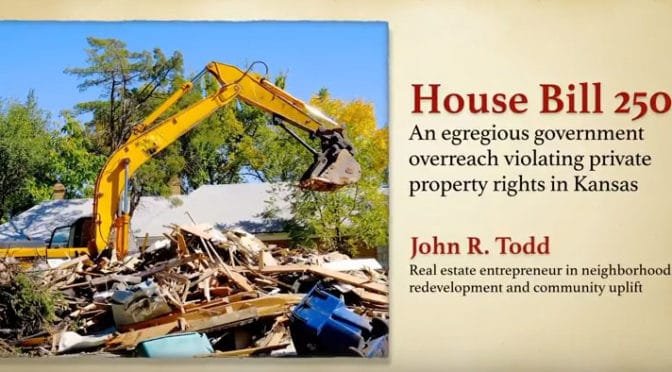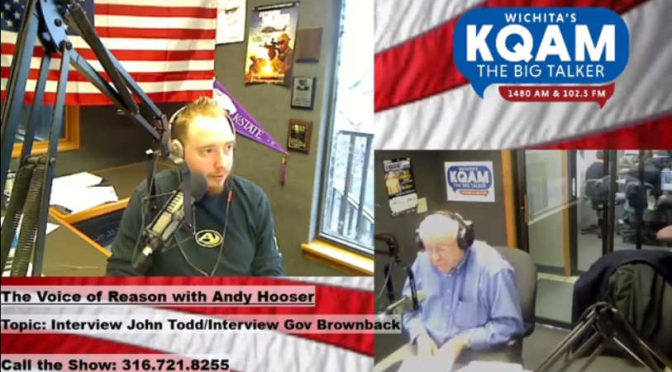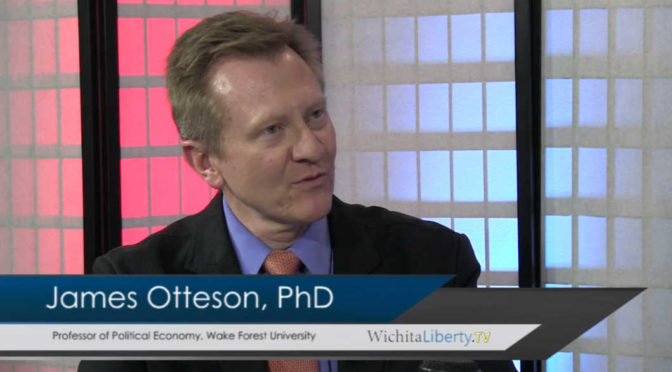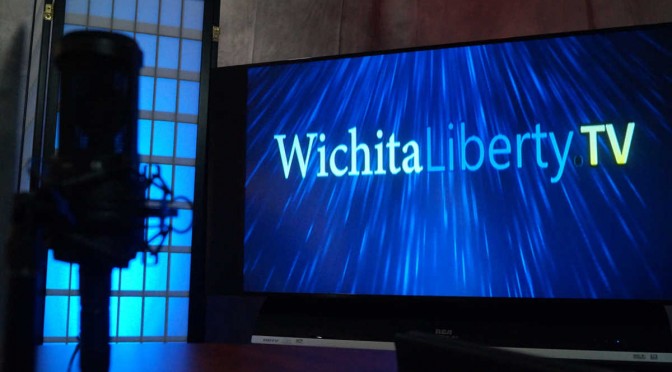Tag: Property rights
-

WichitaLiberty.TV: Kelly Parks and property rights
Kelly Parks joins Karl Peterjohn to discuss county and zoning issues. Parks is a former member of the Sedgwick County Commission and is a member of Kansans Advocating Responsible Zoning (KARZ).
-

WichitaLiberty.TV: John Todd and the fight against blight
John Todd explains how cities in Kansas are seeking additional power to seize property, and tells us why we should oppose this legislation.
-

Property under attack in Kansas
Local governments in Kansas are again seeking expanded power to seize property.
-

Deconstructing Don Hineman
Another Kansas legislator explains why raising taxes was necessary. So he says.
-

In Kansas, the war on property rights
John Todd makes an appearance on The Voice of Reason with Andy Hooser to talk about proposed legislation in Kansas that would be harmful to private property rights.
-

WichitaLiberty.TV: Dr. James Otteson on capitalism
Dr. James Otteson is executive director of the BB&T Center for the Study of Capitalism at Wake Forest University. He was in Wichita to speak at the Bastiat Society and stopped by the WichitaLiberty.TV studios to discuss capitalism.
-

WichitaLiberty.TV: Blight, guns, testimony, and KPERS
Co-host Karl Peterjohn joins Bob Weeks to discuss the fight on blight and property rights, guns on campus, availability of testimony in the Kansas Legislature, and KPERS, our state’s retirement system.
-

In Kansas, the war on blight continues
Kansas governments are trying — again — to expand their powers to take property to the detriment of one of the fundamental rights of citizens: private property rights.
-

Year in Review: 2016
Here are highlights from Voice for Liberty for 2016. Was it a good year for the principles of individual liberty, limited government, economic freedom, and free markets in Wichita and Kansas?
-

WichitaLiberty.TV: Trump and the Wichita Eagle, property rights and blight, teachers union, and capitalism
Was it “Trump” or “Bernie” that incited a fight, and how does the Wichita Eagle opine? Economic development in Wichita. Blight and property rights. Teachers unions. Explaining capitalism.
-

In Wichita, revealing discussion of property rights
Reaction to the veto of a bill in Kansas reveals the instincts of many government officials, which is to grab more power whenever possible.
-
Wichita City Council speaks on blight
Wichita City Council members speak in opposition to Kansas Governor Sam Brownback’s veto of Senate Bill 338, which would have given cities additional power to take property.